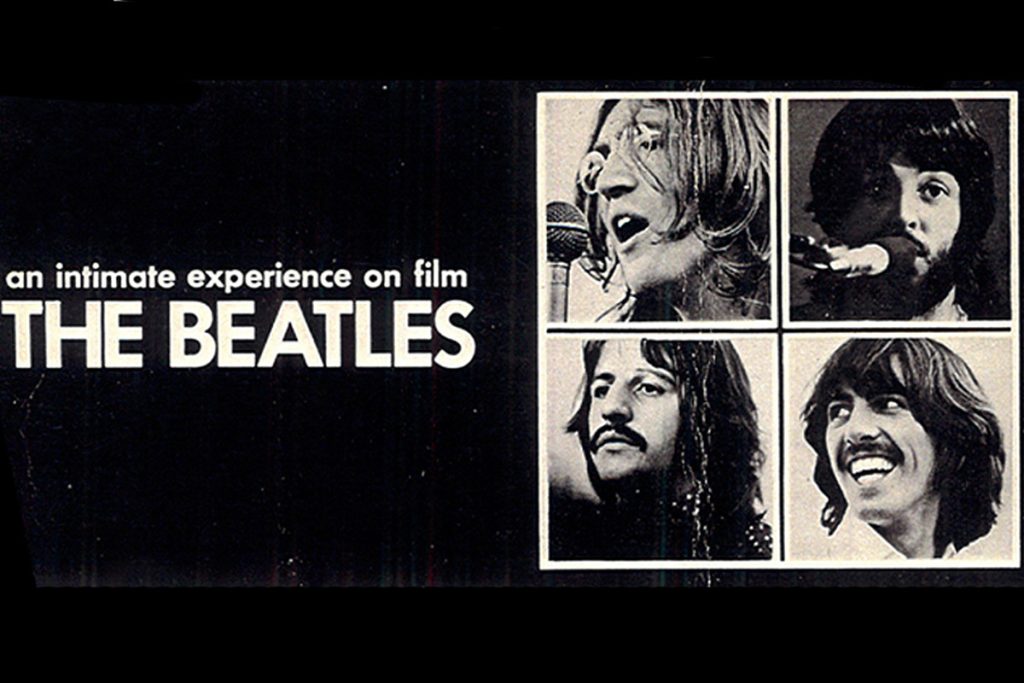The Fab Four, sitting at the studio, rehearsing and laughing as they try to figure out their dynamic a decade into the band’s life. While The Beatles wrote songs for Let It Be, the album and documentary, you can see how they are struggling to keep the magic of the band alive. All four give a mix of smiles and sighs.
A remastered version of the 1970 documentary Let It Be is out on Disney+. Peter Jackson has once again recreated the sights and sounds of the Beatles. Back in 2020, Jackson released a 3-part docuseries called Get Back. It was somewhat of an extended cut of Let It Be. Those who liked Get Back, should like Let It Be as an accompanying piece on the streaming service. The two feel like a celebration of the band’s dying days. Unfortunately, the legendary documentary doesn’t seem to hold the same aura it once did.
The Beatles Documentary Let It Be Was A Revolutionary Film In 1970

When Let it Be was released in 1970, it wasn’t created like the traditional documentary. There aren’t any talking heads. Nobody really addresses the camera. There isn’t some big story. (Ex. Metallica’s Some Kind of Monster) It was a revolutionary film that felt more like the audience was a fly on the wall. At a time when most documentaries had narrators and stories, this film has neither. You simply just exist alongside the band.
Over 50 years later, it isn’t as radical, especially with the superior documentary now being Get Back. The best part of Let It Be is its ending sequence. The Beatles play what would be their final concert on the rooftop of the studio. It’s a beautiful performance. It’s shot well. Thanks to Jackson, it also sounds extraordinary. Even then, it still doesn’t feel like the definitive documentary piece. The best part, outside of the rooftop concert, is the first 5 minutes where Peter Jackson talks with the film’s director, Michael Lindsay-Hogg. It’s somewhat of a prologue to the film. Only there do you get talking heads giving some context to the footage you see throughout the rest of the film.
Beyond Let It Be and Get Back, Ron Howard’s The Beatles: Eight Days A Week is a wonderful documentary from 2016. Even more recently, the last Beatles song, titled “Now and Then“, made from a John Lennon demo, debuted on the Billboard charts. Again, thanks to Peter Jackson, the song and music video are wonderful. It’s been a good few years for Beatles fans. In fact, I think that Beatles fans, especially those who first saw Let It Be in theaters, will enjoy the remastered documentary. For most people who are casual Beatles enjoyers, this may not be as impactful as some of the other media.

Remastered For An Older Generation, Not Interesting Enough For A Younger One
Historically and technologically, this remaster is beautiful. It’s crazy to watch Yoko Ono simply exist in the studio. You can feel exactly how everyone else feels when she is in the room. Like with Get Back, it’s incredible to watch Paul McCartney work. You can also see the unease George Harrison had at the time as he wanted to break free from being the 3rd frontman of the band. While the music is fun to see performed, the real nuggets of this film are the moments without words. It’s how they look at each other. It’s the moments where nothing is happening. The unspoken truth. For me, though, someone who didn’t grow up at the peak of Beatlemania, it doesn’t connect. Let It Be is a fun watch, but it feels more like a film for an older generation. One that is more dedicated to the 4 men from Liverpool.
Ultimately, I think Let It Be is a beautiful film, remastered for an older generation, not quite interesting enough for a younger one. The music is fantastic. The glimpses into the band are interesting. Its impact on Disney+ would be greater had Peter Jackson not released Get Back. It feels like those two films should have been released in reverse. Let It Be feels like the lesser version. Frustratingly, a film I want to enjoy, but it isn’t exceptional enough to keep my interest.

If you’d like to see more reviews of recent releases, click here to read more.

![‘Let It Be’ – The Beatles Dying Days Remastered [Review]](https://thathashtagshow.com/wp-content/uploads/2024/05/68f31db0-c1bf-4e8b-ad8b-ee614abbf4c8-1280x640.jpg)
![Guy Pearce’s New Psychological Thriller “The Infernal Machine” — More Like The Infuriating Machine [REVIEW]](https://thathashtagshow.com/wp-content/uploads/2022/09/307582254_601253704985692_7372861166594524797_n-440x264.png)


